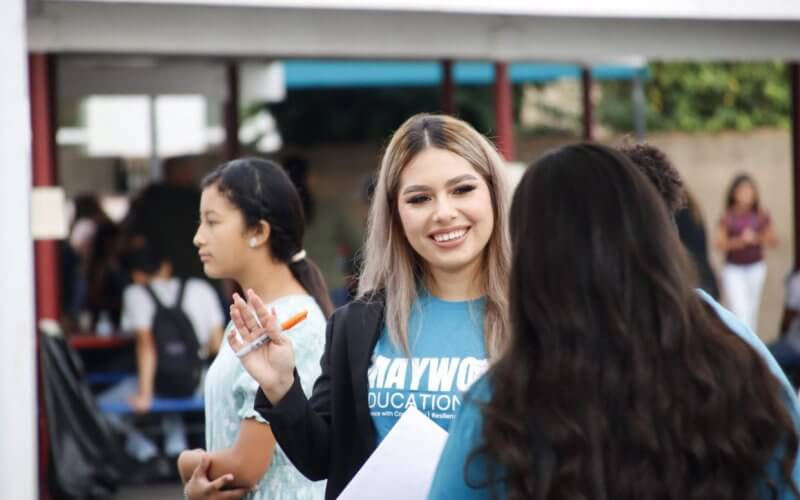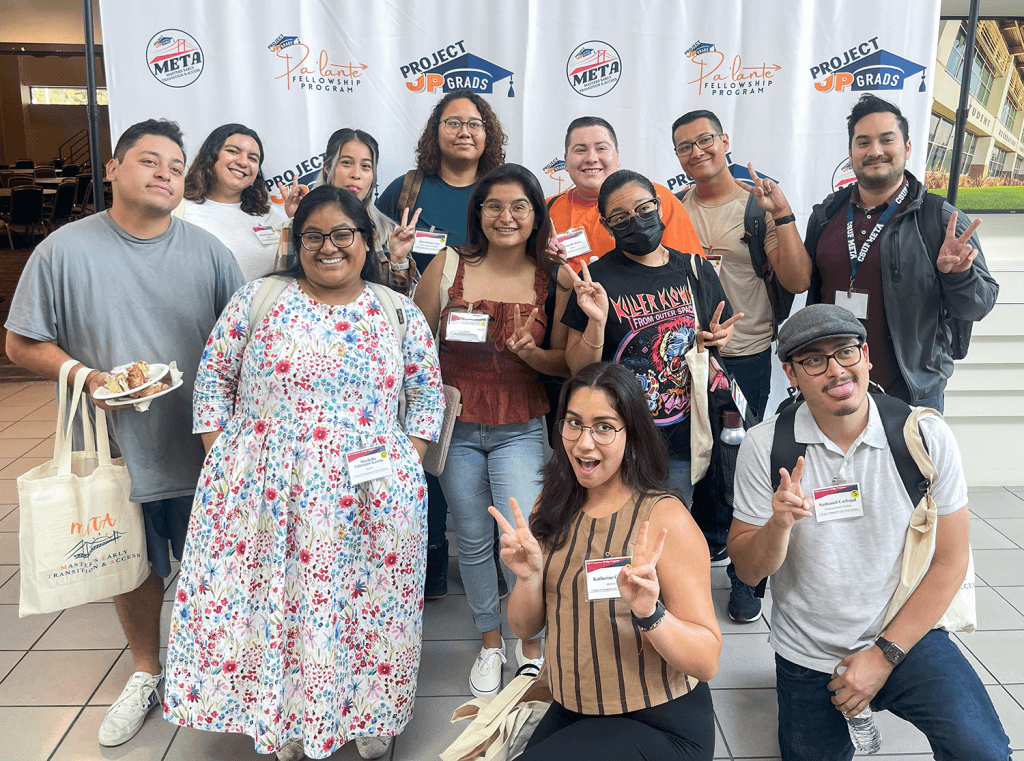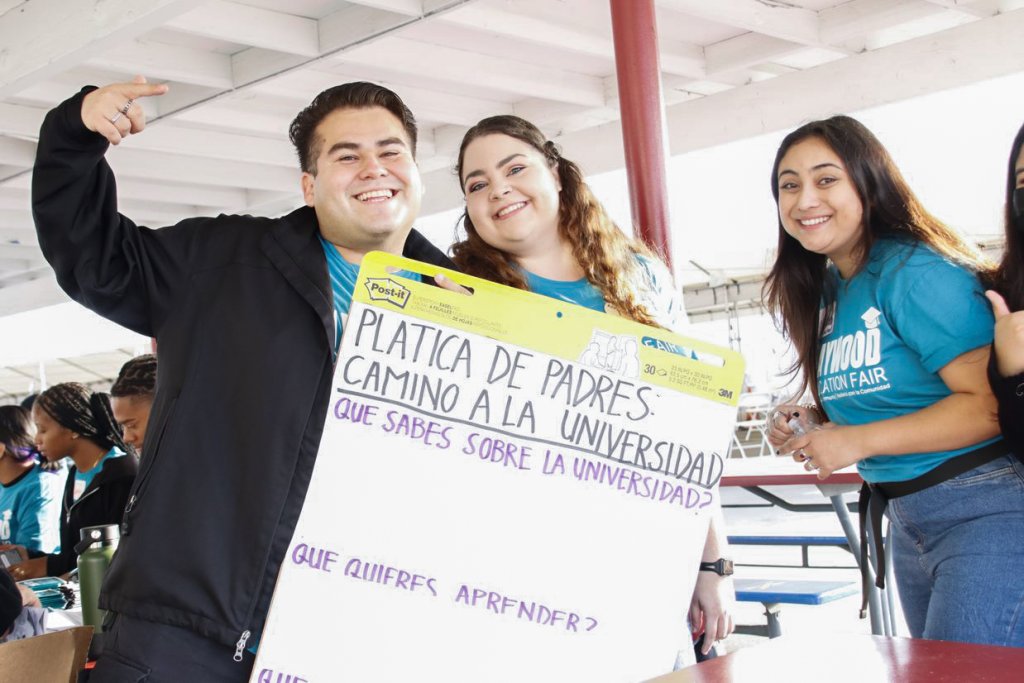
Two Cal State Fullerton programs that strive to boost academic success for underrepresented graduate students are among the nation’s finalists for the 2024 Examples of Excelencia by Excelencia in Education.
Project upGRADS has improved enrollment, persistence and graduation rates for Latinx graduate students across disciplines. The Master of Science in Higher Education program has excelled in preparing leaders to serve the needs of today’s diverse students.
Excelencia in Education, a national nonprofit organization that champions Latinx success in higher education, recognized 18 programs across the country. The finalists were selected for intentionally serving Latino students in higher education with culturally relevant and asset-based programming.
The finalists demonstrate “an intentional and aligned approach in supporting Latino and other post-traditional students academically, financially and socially.” From the finalists, Excelencia will announce four programs as the 2024 Examples of Excelencia at a Sept. 30 recognition event in Washington, D.C.
Project upGRADS
Project upGRADS has been highly successful due to its advising, mentorship and scholarship efforts, with close to 7,000 graduate students served, said faculty members Katherine Powers and Volker Janssen, who lead the project.
“Being a finalist for Examples of Excelencia means a great deal. It’s rewarding to see our efforts recognized by a community of peers in higher education practices,” said Powers, who has led the grant program since its inception.
Project upGRADS is funded by a five-year, $3 million U.S. Department of Education Hispanic-Serving Institution grant awarded in 2019 and serves students from CSUF’s eight colleges.
Powers said the program addresses the disparities in enrollment, retention and graduation rates between Latinx students and the general graduate student population.
Project upGRADS supports students through one-on-one academic advising, new student onboarding, faculty-student collaborations, scholarships, professional development opportunities, and faculty training in cultural awareness and humility, Janssen said.
Due to the program’s initiatives, Latinx graduate admissions have increased from about 30% in 2020 to 36% in 2023, Powers said.
Under the Master’s Early Transition and Access summer program, first-year Latinx students learn about graduate student culture, life, and their academic program’s writing and research expectations.

The Pa’lante Fellowship program connects faculty advisers with graduate students of color, helps them connect with peers, fosters their preparation for postgraduate careers and provides them with scholarship support.
Project upGRADS has invested in advising staff who proactively assist students with support to complete graduate school applications. Faculty advisers trained in cultural humility and culturally competent communications also have increased Latinx grad students’ sense of belonging.
“Empowering Latinx students to endure the stresses of graduate school, work and family obligations takes more than good intentions. It requires a deeper knowledge of students’ cultural backgrounds, which are often very different from our faculty,” Janssen said. “It takes skills and practice to help students bridge the divide between the institution and the world they know.”
As the program’s activities come to a close with the end of the grant’s fifth year, Powers and Janssen are working with Academic Programs and other campus partners to make them permanent practices at CSUF.
“Even when our grant funds are spent in the coming year, Project upGRADS’ work will become part of CSUF’s graduate culture for years to come,” Powers said. “Making lasting change has always been the purpose.”
M.S. in Higher Education
The 30-unit M.S. in higher education program focuses on leadership, social justice and advocacy and facilitates learning through a collaborative, scholarly community.
The key service-learning component of the program is the Maywood Education Fair, where 98% of the city’s population is Latinx. The graduate students organize the annual fall community event to promote a college-going culture through Spanish-language learning, scholarship fundraising, and workshops for students and parents.

The graduate program also incorporates fieldwork, faculty and peer mentorship, case studies, graduate assistantships and opportunities to attend conferences.
For the past 15 years, the program has prepared entry-level professionals and those seeking career changes for roles in higher education that support student learning and development.
“We’re committed to promoting the academic and professional success of our students,” said Lissa Ramirez-Stapleton, associate professor of educational leadership. “Due to the program’s coursework and intentional design, Latinx students are graduating and entering the workforce at an impressive rate.”
From 2020-23, Ramirez-Stapleton said that the graduation rate of Latinx students in the program was 92.6%. For the 2023-24 academic year, 70% of the students enrolled in the program were Latinx.
The program has also successfully prepared students to enter the workforce in positions that support student learning and development.
Before 2009, the College of Education’s graduate programs lacked a higher education component.
“The college created the graduate program alongside a doctoral program focusing on community college leadership to fill this gap,” Ramirez-Stapleton said.